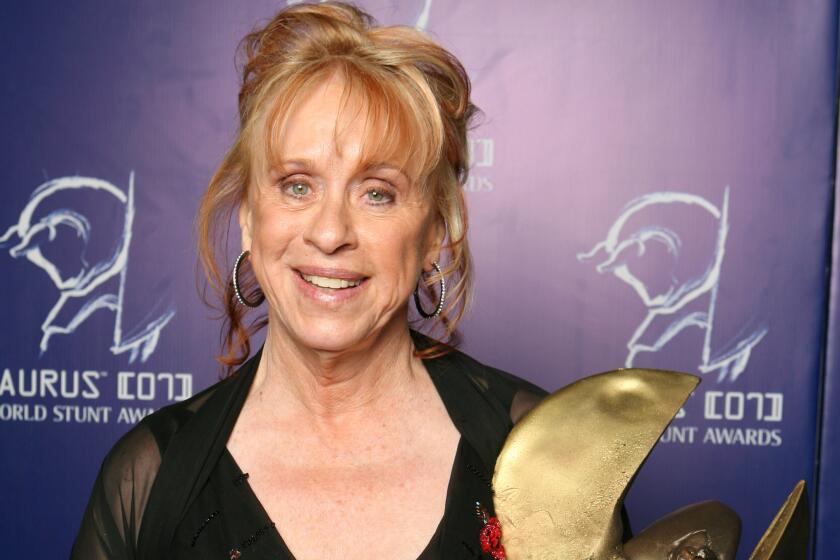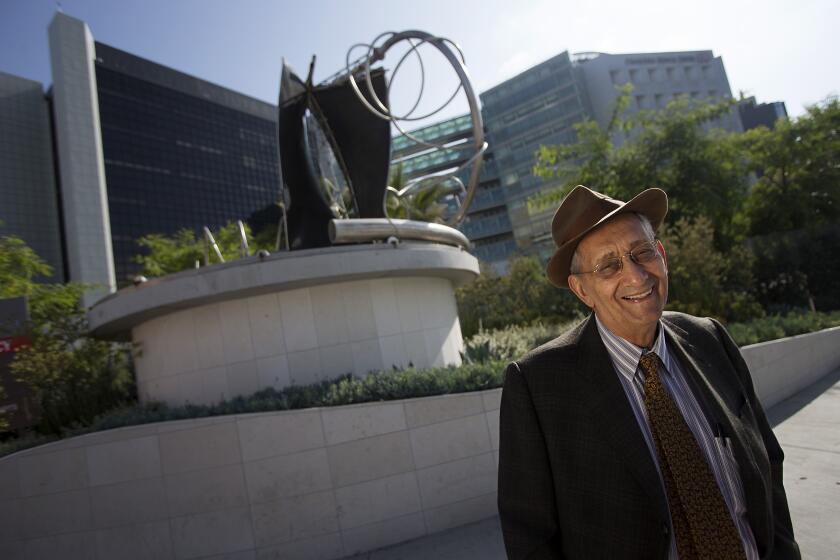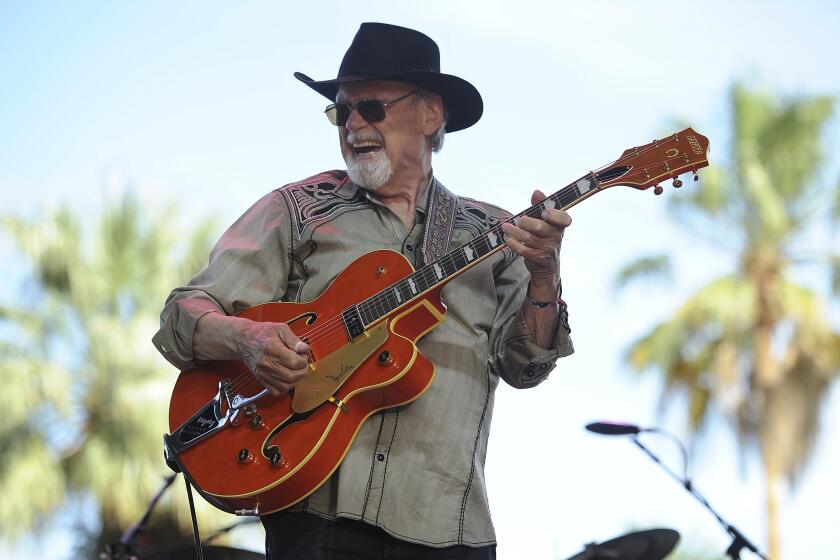Alex Johnson dies at 72; Angels’ troubled batting champ
Alex Johnson, the only batting champion in Angels’ history, died Saturday of complications from cancer. He was 72.
His death was announced by the James H. Cole Home for Funerals in Detroit.
Johnson hit .288 in 13 major league seasons, but it was his two volatile years with the Angels that defined him.
In 1970, Johnson hit .329 to win the American League batting title, beating out Boston Red Sox slugger Carl Yastrzemski on the last day of the season. In 1971, he was suspended five times and became the face of a dysfunctional team.
The Major League Players Assn. filed a grievance, which became a landmark case that forced baseball to treat mental issues on par with physical injuries.
Marvin Miller, then the head of the players’ union, said in 1990 that he became convinced of Johnson’s “emotional illness” after an 11-hour meeting with the left fielder. The Angels lost the arbitration case and were ordered to reinstate Johnson with back pay.
In a 1990 interview with The Times, Johnson denied having emotional issues but said, “I was young back then and didn’t know about human beings. What I saw on that team was evil. You get too many negative things and you get your mind off the main objective, which was winning baseball games. A lot of guys on that team were more concerned about watching me than doing their own jobs.”
The battles with teammates, managers, front office officials and sportswriters overshadowed Johnson’s abilities. He often boasted, “you hit when you can; I hit when I want,” and could back up that bravado.
Johnson was born Dec. 7, 1942, and grew up in Detroit. He played at Northwestern High, where he was a teammate of future Detroit Tigers star Willie Horton. Ron Johnson, Alex’s brother, was a star running back who became a 1,000-yard rusher for the New York Giants in the NFL.
Alex Johnson turned down a football scholarship to Michigan State to play baseball. He spent two seasons each with the Philadelphia Phillies, St. Louis Cardinals and Cincinnati Reds, where he both impressed and frustrated managers. Phillies’ Manager Gene Mauch said Johnson was the fastest player he had ever seen going from second base to home plate. He also grew weary of what he perceived as Johnson’s bad attitude.
The Angels traded for Johnson in 1970, a deal that paid off initially. The Angels remained in the race for the American League West Division title until mid-September. Johnson and Yastrzemski took the batting title race to the wire.
The Red Sox finished their season a day before the Angels. Manager Lefty Phillips put Johnson in the leadoff spot for the last game and he went two for three. After Johnson beati out an infield grounder in the fifth inning, the scoreboard flashed that he was .0003 percentage points ahead of Yastrzemski. He was pulled for a pinch runner.
“Lefty Phillips came over to congratulate me,” Johnson said in 1990. “I said, ‘The people in Boston are going to be mad at both of us.’ ”
In 1971, the Angels were picked to win the division but quickly unraveled. Johnson became the focal point. He was viewed as loafing too often and having a confrontational manner.
“I think Alex took the heat for everybody,” Angels pitcher Dave LaRoche said.
Others disagreed.
“He was really like two different people,” Jim Fregosi, the Angels shortstop who went on to manage the team, recalled in 1990. “I saw him do tremendous things for kids when he was out of uniform. Then he’d put the uniform on and he’d change. If he didn’t feel like doing something, like running hard, he wouldn’t do it.”
Johnson feuded with sportswriters — he once dumped coffee grounds in the typewriter of one who had hidden his bats as a practical joke — and brushed aside disciplinary attempts by Phillips.
Phillips suspended Johnson after one game, declaring that he would never play for the Angels again. When Phillips reinstated him two days later, Fregosi said, “Lefty gained one player and lost the other 24.”
Incidents piled up. Pitcher Clyde Wright brandished a clubhouse stool at Johnson. He backed down when Johnson hit himself in the head with his own stool and said, “that stool is not going to save you,” according to Wright. Chico Ruiz, a reserve infielder who was godfather to Johnson’s adopted daughter, pulled a gun on him outside the clubhouse during a game. Johnson refused to talk about the incident in a 1990 interview.
Johnson was suspended the last time in June 1971 for what the team called “lack of hustle and improper attitude.” The players union’s Miller put much of the blame on Dick Walsh, who was then the Angels’ general manager. “In the middle of everything that was going on … Walsh called Johnson’s wife and, in essence, complained to her about Alex,” Miller said. “That really set Alex off.”
Miller said a psychiatrist confirmed his suspicions that Johnson had an emotional illness. Walsh requested that Johnson see a second psychiatrist, one selected by the Angels, who came back with the same findings.
An arbitrator ruled that Johnson had an emotional disability that needed to be treated as much as physical injury. Johnson was reinstated, but said in 1990, “I lost all enthusiasm for the game.” He played five more seasons with Cleveland, the New York Yankees and Detroit.
Johnson stayed in Detroit after his baseball career to run his father’s trucking company. His survivors include his daughter, Jenifer; a son, Alex; his brother, Ron; and his sister, Jean.
Twitter: @cfosterlatimes
More to Read
Start your day right
Sign up for Essential California for the L.A. Times biggest news, features and recommendations in your inbox six days a week.
You may occasionally receive promotional content from the Los Angeles Times.







